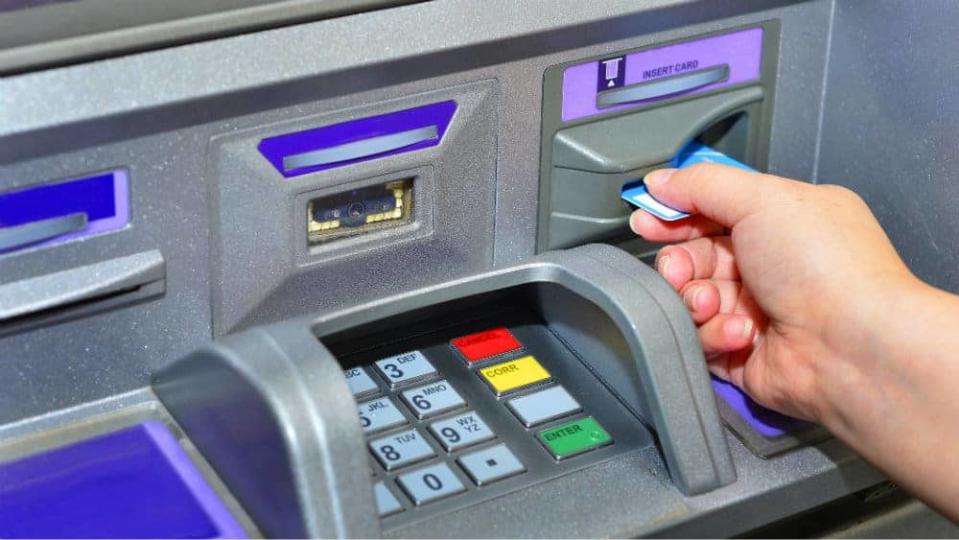2 Bank Stocks to Watch if the Market Crashes

Recession: a scary word that is repeated quite frequently these days. People are preparing for a market crash. Experts are speculating whether it will be similar to the one in 2008-2009, or something different. And even when no one is declaring the arrival of a recession with surety, almost everyone is worried about it and preparing for it, one way or another. So, what does it mean for an investor like you?
It means that even if a market crash is not imminent, preparations for it are prudent. The global economic condition is changing. Because of the country’s banking policies, Canadian banks suffered less in the last recession than U.S. banks. But will they be able to hold out if another recession hits?
Some experts are comparing the country’s housing bubble to that of the U.S.’s, which became the engine of the last recession. Many investors are shorting Canadian banks in anticipation. It has not yielded any significant results yet, but it is an indicator. So, given the country’s own and global economic condition, let’s take a look at two of the Big Six banks: Toronto-Dominion Bank (TSX:TD)(NYSE:TD) and Bank of Nova Scotia (TSX:BNS)(NYSE:BNS).
Toronto-Dominion Bank
Toronto-Dominion is the second-largest bank in the country, with a market cap of $135.7 billion. The bank is also the most profitable of the Big Six, outperforming the others by considerable margins. TD has traditionally been preferred as one of the safest banking investments due to its primary focus on retail banking. The bank’s 34.49% growth in market value is also at the top among the Big Six.
All these fundamentals and growth patterns suggest that the bank should weather the impending market crash better than other companies. But some factors have investors worried. TD has the most extensive U.S. presence, with almost 30% of its yearly earning coming from there. TD is the ninth-largest U.S. bank. This international reach has contributed significantly to the bank’s growth and revenue.
But the U.S. banking system is not regulated like Canada’s is. And if the recession hits, TD’s American presence might backfire.
Bank of Nova Scotia
With a market cap of $91.64 billion, Nova Scotia is the third-largest bank in the country. While it’s not exactly the underdog, the bank has been underperforming when we compare it to the Big Six, with the five-year market value growth only above Canadian Imperial Bank of Commerce. But for its investors, it’s more generous and just as consecutive at paying dividends as the other Big Six.
Just like TD, Nova Scotia also has a much-diversified portfolio. The bank has extended its operations primarily in Latin America. In the last quarter, about 45% of the bank’s net income came from its international operations.
This diversification can help the bank generate a lot of revenue if the industrial growth continues to increase, which, unfortunately, isn’t. As of now, major industrial countries like Germany, China, the U.S., Japan, and India are looking at an impending slowing down in production demands. Nova Scotia’s Latin American investments can suffer a lot if the global market crashes.
Foolish takeaway
Both the banks have entered international markets, which is a move that could potentially be highly profitable or incur severe losses. But that doesn’t negate the fact that the banks are rooted safely at home. As long-term investments, neither of the banks might be bad options, because even if the market crashes, it will eventually rise back up.
But whether you plan on buying into the dip or protecting your investments, keep a close eye on the two bank stocks.
More reading
Fool contributor Adam Othman has no position in any of the stocks mentioned.
The Motley Fool’s purpose is to help the world invest, better. Click here now for your free subscription to Take Stock, The Motley Fool Canada’s free investing newsletter. Packed with stock ideas and investing advice, it is essential reading for anyone looking to build and grow their wealth in the years ahead. Motley Fool Canada 2019

 Yahoo Finance
Yahoo Finance 